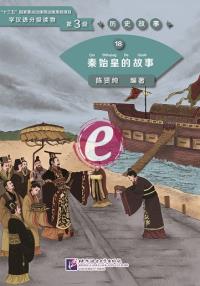Online Bookstore
Online Reading (Non-downloadable): Graded Readers for Chinese Language Learners (Level 3) 18 The Story of the First Emperor Qin Shihuang
Author:Chen Xianchun
- Medium:eBooks
- ISBN: 9787561954881
- Page Count: 99
- Size:
- Pub Date:2019-08
- Annotation Language:
- Course:
- Target Audience(Age):Middle School,College ,Adults
- Target Audience(Language):
- Price:
-
Category: Readers & Supplements >Readers >Adults
Readers & Supplements >Readers >Teenagers
More















